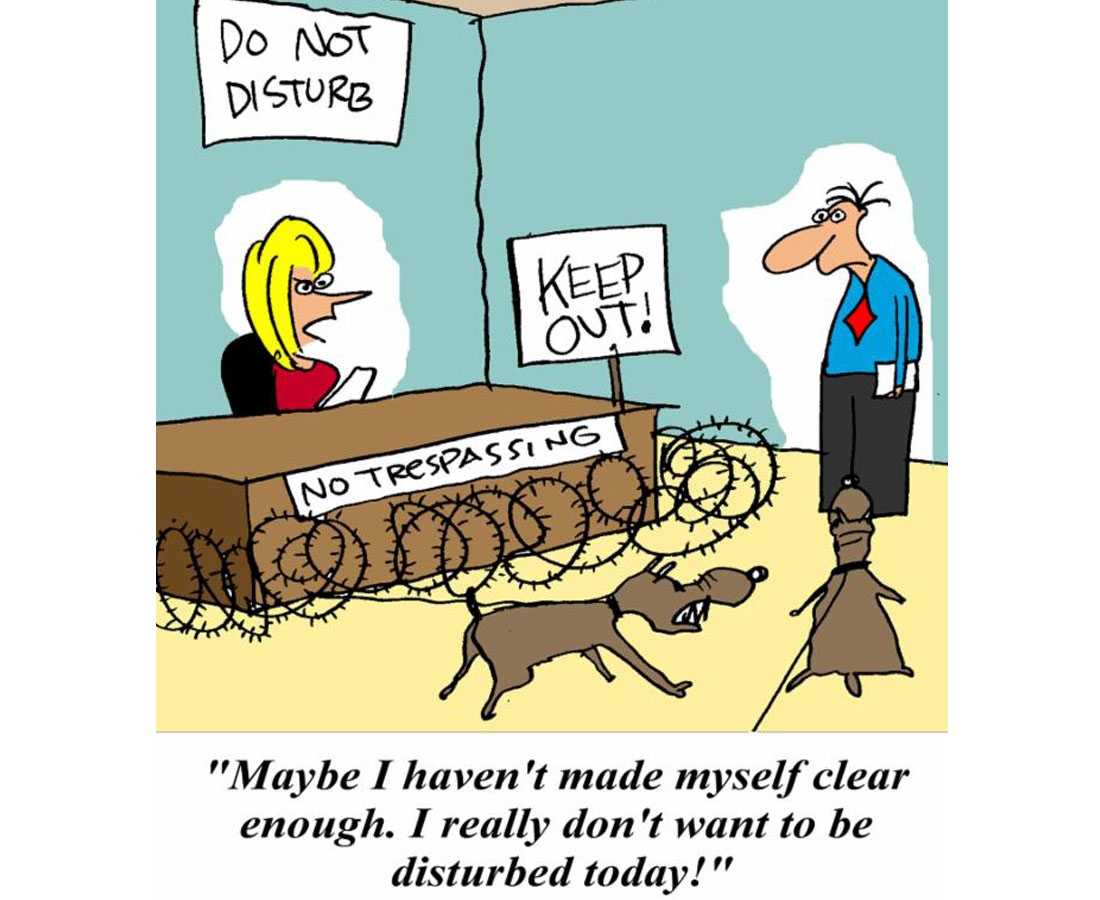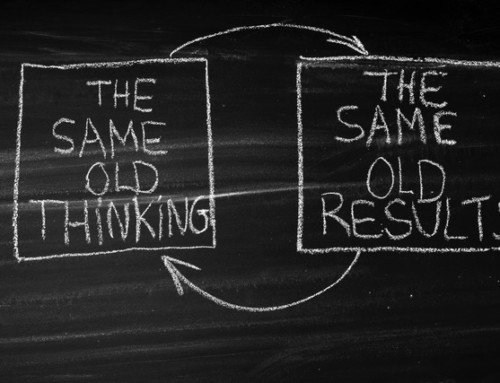Workplace Interruptions
Interruptions: the unexpected demand for your attention that distracts you from the tasks at hand. Shifting your focus, even for a short time, affects the quality of your work, increases stress and reduces productivity.
They will happen. Your boss comes by with some paperwork just as you’re settling in to your big project. A client calls. Your colleague comes by to discuss next weeks meeting. Your smartphone pings with some funny update about tonight’s plans.
Before you flip out (or flip someone off 😉 ), take a breath. Remember that work place interruptions will happen. It’s how you deal with them that matter. Be proactive. Develop strategies to minimize distractions and to get back on track fast.
Structure your time
- Create a “To Do” list for each day and set priorities. When you’re distracted ALWAYS go back to your plan.
- Build in wiggle room when you set and negotiate deadlines so that when distractions occur you still have time to complete your project before the deadline.
- If you have a project that requires an hour or more of uninterrupted time, schedule it for a block of time when
- You are fresh (ex. before normal work hours).
- There are the fewest distractions (ex. before normal work hours, when your colleagues are taking a lunch break).
- Block time off on your calendar so others in the office with access to it know you are “busy.”
Structure your workspace
- If you’re in an open workspace (like me), don a pair of headphones to either cancel out the noise or listen to music to help you concentrate. Don’t wear them all day; your co-workers will see right through that!
- Hang a “Do Not Disturb”(DND) sign on your door (if you’re lucky enough to have one) or your desk. Or come up with some other creative way to silently give your co-workers a heads up on when to communicate versus when you need to concentrate.
- If you face a walkway and people tend to catch your eye as they go by, angle your desk or erect a partial wall with a plant or decorative object to obscure the line of sight.
- If possible, go to another location to work on your project, such as a quieter place in the office, or a conference room, or if necessary, go off-site to a local café or library (with management’s permission, of course).
Limit your distractions
- Turn off email notifications.
- Switch your phone to silent.
- Forward calls to voice mail or another person.
- Tell your coworkers when you’re on project and need a block of uninterrupted time.
Handling interruptions.
Sometimes, something will require you to shift your attention and interrupt your work. When that occurs, use the 3 D’s to guide (Decide, Delegate, and Defer) how you react.
- Decide:Quickly analyze the request for your attention. Some requests require 100% of your attention. If it’s something extremely time sensitive and critical to your boss, most likely you’ll decide to quit what you’re doing and tend to the current demand. If you can, take a minute to make a couple of quick notes about where you were in your thought process so that when you come back to your task you’ll have a good starting point. If not then…
- Defer: Just say “no” nicely by telling the interrupter that you’re on a deadline and that you’ll be able to get to their project at a specific time. Then stick to the agreed time. Offering a specific time leads to better interoffice relations that statements such as “I’ll get to it later.” and “I’ll get to it sometime.” Or better yet…
- Delegate: Ask the interrupter if there is someone else that could do the work that has more resources at this time.
Whew! Monthly newsletter article done. Check. Now where was I? Oh yeah, back to my “To Do” list….
“First, let me finish. Then interrupt.” ― Brian Spellman, Cartoonist’s Book Camp
Interruptions vs. Your Productivity Groove
Connie Dorigan, Founder and Director of Recruiting, sees the food processing industry as the link between good living and good people. She’s the west coast’s most experienced and trusted food processing recruiter. She also provides Executive and Career Coaching and lots of free job search tools. Once you’ve connected with Connie, you’ll always be connected.
© 2018 Connie Dorigan. All rights reserved.
This is a general interest article and does not constitute specific or legal advice.





